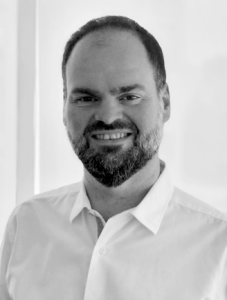Meet the HEDforALL Project Partner
Dr. Rafael Molina Carmona (UA)
 Rafael Molina Carmona received his B.Sc. and M.Sc. in Computer Science from the Polytechnic University of Valencia, Spain in 1994, and his Ph.D. in Computer Science from the University of Alicante, Spain in 2002. He is a professor at the University of Alicante, and he belongs to the department of Computer Science and Artificial Intelligence. He is the director of “Smart Learning”, research group on Intelligent Technologies for Learning: adaptive learning, learning analytics and predictive systems, gamification, video games and digital transformation of educational institutions. His research and teaching activity focus mainly on the use of information technologies to transform society and technological innovation. In particular, he works on the digital transformation of learning, innovation management and Artificial Intelligence applications in different fields: computer-aided design and manufacturing, computer graphics, learning, gamification, IT governance and information representation. He is now the Vice-President for Digital Transformation in the University of Alicante. Its competences include all digital infrastructures and services, the training of university staff and the digital accessibility unit.
Rafael Molina Carmona received his B.Sc. and M.Sc. in Computer Science from the Polytechnic University of Valencia, Spain in 1994, and his Ph.D. in Computer Science from the University of Alicante, Spain in 2002. He is a professor at the University of Alicante, and he belongs to the department of Computer Science and Artificial Intelligence. He is the director of “Smart Learning”, research group on Intelligent Technologies for Learning: adaptive learning, learning analytics and predictive systems, gamification, video games and digital transformation of educational institutions. His research and teaching activity focus mainly on the use of information technologies to transform society and technological innovation. In particular, he works on the digital transformation of learning, innovation management and Artificial Intelligence applications in different fields: computer-aided design and manufacturing, computer graphics, learning, gamification, IT governance and information representation. He is now the Vice-President for Digital Transformation in the University of Alicante. Its competences include all digital infrastructures and services, the training of university staff and the digital accessibility unit.
Three questions to Rafael Molina Carmona
What is your role in the HEDforALL project?
“In the HEDforALL project I am the principal investigator of the tasks assigned to the University of Alicante (UA). My role is to coordinate all the actions of the UA, from my double facet: as a researcher in learning technologies and as responsible for complying with all the accessibility parameters in all the digital resources and media of the university. In recent years we have become the most digitally accessible Spanish university, according to the accessibility observatory of the Ministry of Digital Transformation of the Spanish government, of which we are very proud at the UA.”
Why is accessibility in higher education so important?
“Digital accessibility in higher education is not an option. All students have the right to access education and we must ensure that students with different abilities can participate fully in academic activities, all with the same opportunities. In addition, it is about fostering diversity, which enriches the learning environment and draws on the different perspectives and experiences of all students. In short, it is about creating an equitable and non-discriminatory learning environment.
Digital materials, if accessible, offer features that are difficult to achieve in analogue environments: ease of navigation, clarity, conciseness and encouragement of learner autonomy.
Being accessible to all also has a positive impact on the institution, enhancing reputation, attracting diverse students and benefiting everyone in general. In addition, we must not forget the legal compliance to which all educational institutions are subject.
In short, digital accessibility in higher education is a moral, legal and practical imperative.”
How is the HEDforALL project contributing to improving accessibility?
“The HEDforALL project contributes to the improvement of digital accessibility by defining a set of practices for the development of educational resources and methodologies for Distance Education in Higher Education. These practices and methodologies aim to make digital education more accessible. It is based on universal design which seeks to create resources that are accessible from their origin at the design stage. The use of techniques such as subtitling and audio description, alternative texts, accessible formats, and technological adaptations allow us to help people with different abilities.
Not only that, the HEDforALL project also promotes the training of teachers in the use of assistive technologies and in the creation of accessible educational materials. In addition, the project provides resources and tools to help educational institutions implement digital education in an accessible way.
In short, the HEDforALL project will impact the improvement of digital accessibility in the participating institutions and also in higher education in general, from results that will be of interest to all institutions.”
